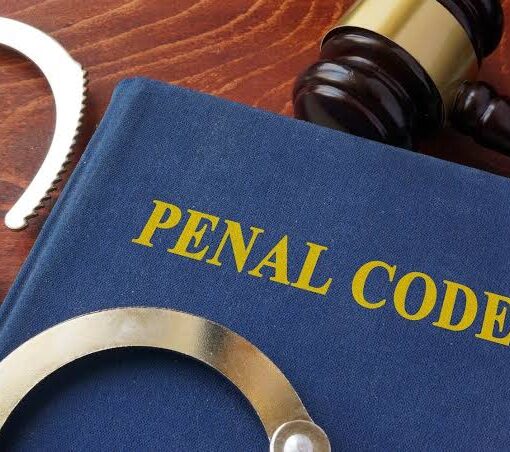Hold For Another Agency, hold for outside agency, hold for other agency has been simultaneously used. In this overview, we would define what they mean and factors that play in.
What is The Meaning of Hold for Another Agency?
The term “Hold for Another Agency” or “Hold for Other Agency” is a legal concept within the context of law enforcement and the criminal justice system. It refers to a situation where a person who is currently in custody or under arrest for a specific offense is also wanted by another law enforcement agency for a different offense or related matters. In essence, it means that the individual will not be released from their current custody, such as in jail, because another agency has issued a request to “hold” them, ensuring their availability for further legal proceedings.
When a person is “held” for another agency, it signifies that the agency making the hold has a legal interest in the individual. This interest typically arises when the person has active warrants, pending charges, or is a suspect in an ongoing investigation being conducted by that agency. The agency could be from the same jurisdiction or from a different jurisdiction altogether, such as a different city, county, state, or even a federal agency.
The process of placing a hold for another agency involves formal communication between the law enforcement agencies. The agency that currently has custody of the individual is notified of the hold request. This prevents the person from being released even if they would otherwise be eligible for release due to completing their sentence or meeting other conditions.
What Is The Significance Of Holding For Other Agency
Holding a person for another agency serves several purposes:
1. Preventing Escape: It ensures that the individual does not escape custody while being transferred between different jurisdictions.
2. Coordination: It allows the requesting agency to coordinate the timing of the individual’s transfer and appearance before the appropriate court or legal proceeding.
3. Consolidation of Cases: Holding an individual for another agency can lead to a consolidation of legal proceedings, making it more efficient for both agencies to handle the cases together.
4. Priority of Charges: In cases where the individual is facing charges from multiple agencies, the hold signifies that the requesting agency’s charges take precedence.
5. Sharing Information: Holding an individual for another agency can facilitate the sharing of information and evidence between different law enforcement entities, aiding in a more comprehensive investigation.
It’s important to note that while an individual is held for another agency, their legal rights and protections are still upheld. They should be informed of the reason for the hold and be provided with appropriate legal representation. The specific procedures and regulations can vary depending on jurisdiction and the involved agencies.
In conclusion, the term “Hold for Another Agency” in the context of law and jail pertains to the situation where a person in custody is kept detained because another law enforcement agency has issued a request to ensure their availability for legal proceedings related to a different offense. This practice is crucial for effective coordination between agencies, prioritizing charges, and maintaining the integrity of the legal process.
RELATED:
Does An Mta Ticket Get Posted On Your Criminal Record? All You Need To Know
Booking Type VC or PC: What it means and other FAQs?
What USM HOLD Means On a Jail Booking Report? Know The Law
Frequently Asked Questions
1. Is the Hold for Another Agency an Arrest Warrant?
No, a “Hold for Another Agency” is not the same as an arrest warrant. An arrest warrant is typically issued by a court or a judge to authorize the arrest of an individual based on probable cause. A hold, on the other hand, is a request from one law enforcement agency to another to keep a person in custody even if they are eligible for release, due to pending charges or investigations by the requesting agency.
2. Can a Person Challenge a Hold by Another Agency?
Yes, a person who is being held for another agency can challenge the hold through legal means. They may have the right to file a writ of habeas corpus, which is a legal action used to challenge the legality of their detention. This can involve demonstrating that the holding agency does not have sufficient grounds to continue holding them.
3. How Long Can a Hold for Another Agency Last?
The duration of a hold for another agency can vary widely depending on factors such as the nature of the charges, the urgency of the investigation, and legal procedures in the respective jurisdictions. In some cases, the hold may last until the individual’s case is resolved or until the requesting agency decides to lift the hold.
4. Can Multiple Agencies Hold a Person Simultaneously?
Yes, it is possible for multiple law enforcement agencies to hold a person simultaneously if they have warrants or charges from different jurisdictions. In such cases, coordination between the agencies becomes essential to prioritize the order of legal proceedings and custody transfers.
5. What Happens After the Hold Is Lifted?
Once the hold for another agency is lifted, the individual may be released from custody if they do not have any other active warrants or pending charges. However, they may still need to address the original charges that led to their initial arrest. If the hold was related to an ongoing investigation, the individual might need to appear before the court or cooperate with the requesting agency as required.
In summary, a “Hold for Another Agency” is distinct from an arrest warrant, and individuals can challenge it through legal means. The duration of the hold can vary, multiple agencies can hold a person simultaneously, and after the hold is lifted, the individual’s legal situation will depend on the specifics of their case. It’s important for individuals in this situation to understand their rights and seek legal advice if needed.
Last updated on: April 26, 2024



